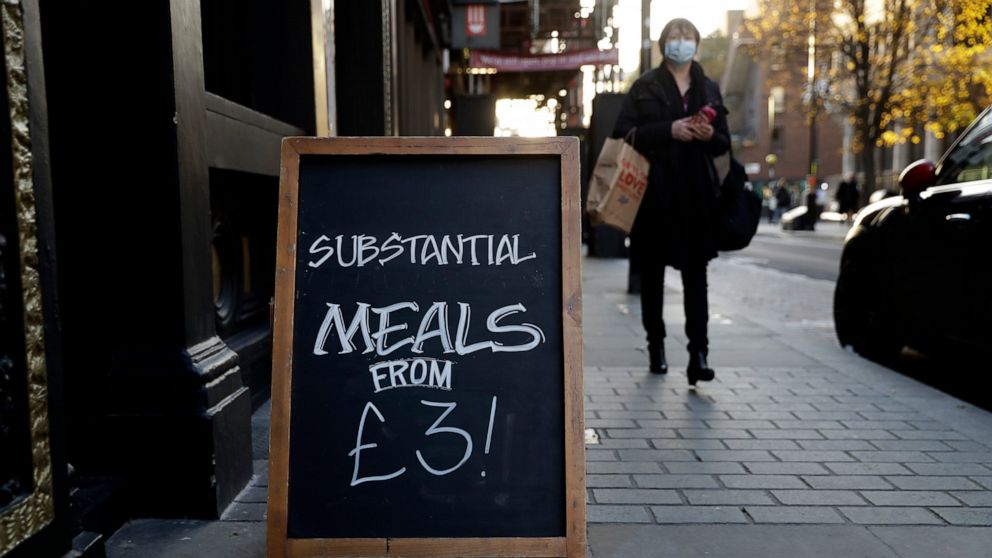UK still plans to ease restrictions on holiday gatherings
Britain’s planned easing of restrictions around family gatherings over Christmas across the U.K. looks set to be retained despite a sharp spike in new coronavirus infections
LONDON — Britain’s easing of restrictions for family gatherings over Christmas looks like it’s still on despite a sharp spike in new coronavirus infections that’s raised fears of another wave of cases and deaths in the new year.
Britain’s communities secretary, Robert Jenrick, said further discussions will take place on Wednesday between leaders from the four nations of the U.K. about the planned relaxation. However, he gave no indication that a change would be announced, beyond urging people to think harder about their holiday plans.
“It could be counterproductive to produce overly restrictive rules rather than providing very clear and sober guidance and ask people to think carefully and come to their informed judgment,” he told BBC radio.
Criticism of the planned five-day easing of restrictions, which would allow three households to form a holiday bubble, have ratcheted higher in recent days. With new infections rising in many places, concerns are growing that the relaxation will only escalate infections and deaths and put too much pressure on the already-stressed National Health Service.
Michael Gove, a senior member of Britain’s Conservative government, which sets public health policy for England, has met with leaders from Scotland, Wales and Northern Ireland on the U.K.’s Christmas plans, and the group will meet again Wednesday. They agreed last month to allow a maximum of three households to mix between Dec. 23 and Dec. 27, regardless of what local restrictions are in place.
On Wednesday, London and nearby areas entered the highest level of local restrictions in England — Tier 3 — in which pubs and restaurants had to close again apart from takeout, and more curbs were placed on different households meeting up. Other areas in England, including the cities of Manchester and Birmingham, are finding out later Wednesday whether they will be moved down to Tier 2 restrictions.
Jenrick said the rollout of the coronavirus vaccine developed by America’s Pfizer and the German company BioNTech had changed the narrative since the Christmas bubble decision was made. The U.K. on Dec. 8 became the first country in the world to use the vaccine, which has a high efficacy rate of around 95%.
“It’s given hope that early in the new year, if not before, those people can be vaccinated. So why not wait a few weeks or months to get family together when you can do so safely in 2021?” he said.
Britain’s new vaccines minister, Nadhim Zahawi, said Wednesday that 137,897 people had received a vaccination shot since inoculations began. All those people must return in three weeks for a follow-up shot.
“A really good start to the vaccination program,” he said in a tweet.
The government, which is providing the vaccine free of charge mainly at hospitals so far, is first targeting nursing home workers and elderly people over 80. Nursing home residents are now being vaccinated as well after issues relating to the transportation of the vaccine, which needs to be kept at super-cold temperatures, were addressed.
Despite the update, questions remain over how many people can be inoculated on any given day, and what proportion of people being offered the vaccine are agreeing to get a shot.
To date, 800,000 doses of the Pfizer vaccine are known to be in the U.K. and 5 million more are expected to arrive this year, half of the original expectation.
Other vaccines from American biotechnology firm Moderna and one developed by the University of Oxford and British pharmaceutical firm AstraZeneca are currently being assessed by British regulators.
———
Follow AP coverage of the virus outbreak at https://apnews.com/hub/coronavirus-pandemic and https://apnews.com/UnderstandingtheOutbreak
![]()


